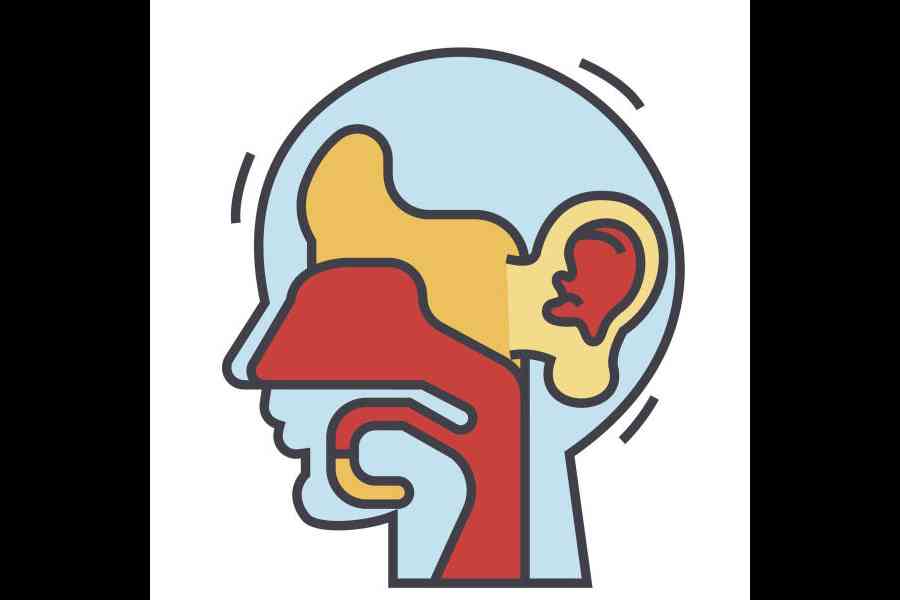Between one and four per cent of the population aged 40-60 experience persistent nasal blockage, making it difficult to breathe. The problem is often worse at night, disturbing sleep and sometimes leading to snoring. During the day, their sense of smell and taste may be reduced. They frequently complain of a constantly runny nose, headaches, repeated sneezing and, occasionally, itching around the eyes. Many members and generations of a family may be affected. This may lead to feelings like “we all have colds” and the sharing of prescriptions.
Many patients attribute these symptoms to frequent “colds”. They may be prescribed antibiotics and other symptomatic treatments, or at times may self-medicate with nasal sprays containing chemicals such as oxymetazoline. While these may provide temporary relief, the effect quickly wears off. Over time, the nasal mucosa becomes habituated, responding less effectively and requiring more frequent doses. It can even result in rebound congestion, where symptoms worsen once the effect of the spray wears off. Prolonged misuse may cause the nasal lining to thin out and become atrophied.
Eventually, many patients consult an ENT specialist, who may discover nasal polyps. These are painless, teardrop-shaped, soft tissue growths that develop in the lining of the nasal cavity and sinuses. Even though polyp sounds ominous, nasal polyps are non-cancerous.
On careful questioning, patients often recall a past sinus infection after which, even though the fever subsided, other symptoms never completely resolved and lasted for three months or longer. The exact reason why some people develop nasal polyps while others do not remains unclear.
It is believed to be related to an abnormal, exaggerated immune response to allergens or irritants. This may be inherited. Possible triggers include vapourised mosquito repellents, cigarette smoke, petrol or diesel fumes, and burning wood or garbage. Many affected individuals also have hyperactive airways with wheezing or asthma. Poor dental hygiene and recurrent tooth infections may contribute. Studies show that many people with nasal polyps also have low levels of Vitamin D.
Although nasal polyps are non-cancerous, they can obstruct the normal drainage of nasal secretions. This may lead to secondary infections. Additionally, nasal polyps can exacerbate asthma.
Nasal polyps are usually diagnosed through a nasal examination or endoscopy. Imaging studies, such as a CT or MRI scan, may be performed to assess the size.
Allergy testing can help identify underlying triggers. If the polyp appears unusual, a biopsy may be done to rule out other conditions.
Often, polyps respond well to a steroid nasal spray and antihistamines. Treatment has to be systematic and regular. Rinsing the nose with warm salt water regularly helps clear out allergens. Avoid obvious triggers like cigarette smoke and dust. Wear a mask outdoors. Take steam inhalations twice a day. It will liquefy the secretions and enable them to flow more freely.
Breathing exercises in yoga, such as alternate nostril breathing and deep breathing practices, can be beneficial. Regular aerobic exercise, which increases breathing and heart rate, can help clear out allergens before they adhere to the nasal mucosa.
Sometimes, surgery is offered for nasal polyps but they tend to recur within 18 months. Since surgical removal of nasal polyps does not provide a permanent cure, treatment must shift toward long-term management, preventing inflammation and strengthening immunity. The response is usually gradual, so therapy needs to be systematic, disciplined and continued consistently over the long term. Patience and regular follow-ups, therefore, are essential for long-term relief.
The writer has a family practice at Vellore and is the author of Staying Healthy in Modern India. If you have any question on health issues please write to yourhealthgm@yahoo.co.in










